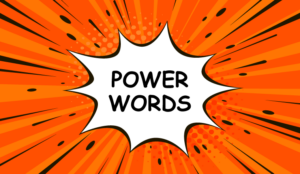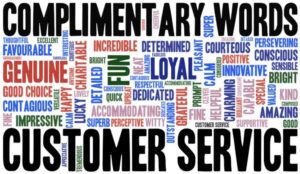We explore why removing negative words from the contact centre may actually increase call duration.
Removing Negative Words
In February, we released an article in which Dr Anna Kristina Hultgren examined the use language of contact centres.
Having read the piece, I contacted Kristina to find out more about the research and uncovered that her data suggested that banning certain words in the contact centre may prolong call duration.
To conduct her research, Kristina visited a contact centre, which “had a list of words that advisors were not allowed to use. Some of them were thought to include too much inside jargon, like a list of words referring to different departments, but more generally negative words were those not permitted for use. This included ‘no’ [and its other derivations].”
Whilst this would seem to make sense, as you are removing any negativity that could give the interaction a discouraging tone, it does not appear to be an efficient way of managing a customer–advisor conversation.
Kristina makes the point that “this goes against common linguistic knowledge that you need these words to talk properly and to manage communication in an efficient way.”
Call Durations Increased
One word that the contact centre was very strict on prohibiting was “‘unfortunately’, because it was perceived as a very negative word. But this goes against the linguistic principle that you need mitigating words for an interaction to work.
“In fact, there is evidence in some of my calls that by the agent not being able to use the word ‘unfortunately’, the interaction is actually prolonged. This is because the agent has to use a roundabout way of saying that he or she is not able to do what the customer wants him or her to do.”
So, by placing rules on how to speak to a customer, it seems as though we are making advisors interact in a way that does not come naturally to them. This means that advisors are meandering when making their points, which prolongs the conversation.
But How do we Combat This?
Great customer service in the contact centre is very important to any company, but it is also important not to extend call durations when there is little need to do so, for staffing and financial reasons.
Bearing this in mind, here are two suggestions to uphold high levels of customer service without compromising call duration, as word bans appear to do.
Teach Techniques, Don’t Simply Ban Words
When writing our article: The Right Words and Phrases to Say to an Angry Customer, many of our readers told us that they do not give advisors a list of words to use but encourage them to adopt certain techniques instead.
These techniques included a four-point plan and remembering the acronym PIA (Power word / I statement / Assurance), which are both outlined in the article, which were used to help advisors in difficult situations.
So, if your advisors are struggling to meet targets based on call duration, don’t ban mitigating words, such as “unfortunately” from Kristina’s example. Instead, you may find it helpful to teach techniques, like those above, which allow advisors to use natural, mitigating language to reduce call time.
Focus on Values and Allow for Creativity
As previously discussed, telling advisors what to say and what not to say may hinder performance, as advisors have to take time to avoid expressing what might come naturally to them. So, maybe it would be better to promote values in the contact centre instead giving out “hard” instructions.
Whilst it can be difficult to release the control over interactions that prompts, word bans and so on provides you, giving advisors freedom to think creatively when answering customers’ queries can help to rejuvenate minds.
It also adds authenticity to customer–advisor interactions, instead of impersonal and robotic responses.
Conclusion
Whilst banning words may, in theory, boost customer service, this strategy does appear to have a negative effect on call durations. So, using other methods like the two above may be of better use in the contact centre.
Although you may be uncertain of softening your grip on customer–advisor interactions, by removing word bans, you can make advisors aware of using positive words and empathy statements instead.
But it seems best not to prompt advisors to use them; instead just encourage their use and let it happen naturally.
By doing this, and making advisors aware of techniques and tips to reduce handling time, you have a greater chance of providing high levels of customer service without compromising call durations.
Have you enacted a word ban in your call centre? If so, did it impact upon call duration?
Please leave your response and any other thoughts in an email to Call Centre Helper.
Author: Robyn Coppell
Reviewed by: Megan Jones
Published On: 10th Apr 2017 - Last modified: 14th Aug 2025
Read more about - Skills, Language, Positive Words, Skill Development
















While “word ban” is a strong way to address these issues and in my opinion is not teaching the “why”, certain words like “Honestly” are coached out of the conversation and I see no issue with AHT increasing. I espouse loose scripting that allows for creativity however the call flow needs to be followed.